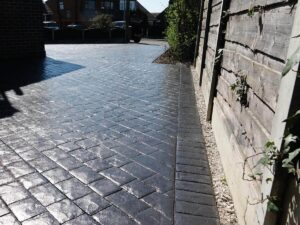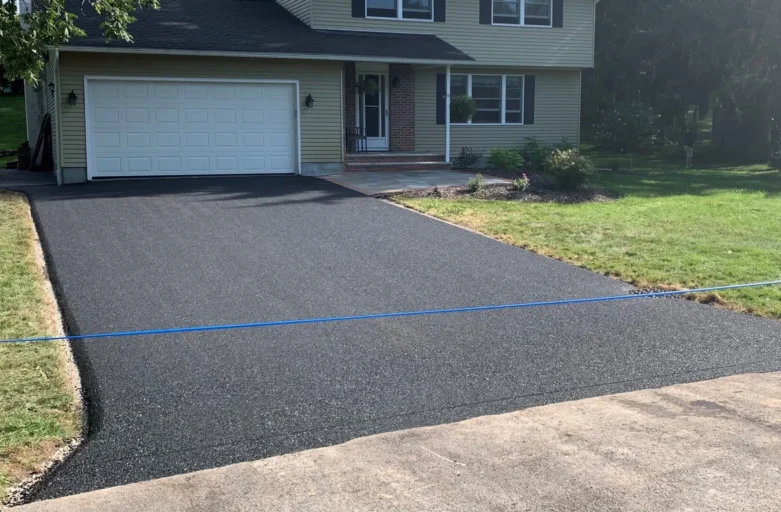Paving Companies Charleston SC is an investment that enhances your home’s value and provides a safe surface for pedestrian and vehicle traffic. It’s important to work with a qualified contractor and understand what is involved in the process.
Driveway materials range from inexpensive gravel to expensive paver bricks or poured concrete. There are also options like exposed aggregate, tar, and chip.

The cost of driveway paving can vary widely depending on the material used, how much work needs to be done, and the size of your driveway. It is also important to consider your climate. Some materials are unsuitable for colder areas because of freeze-thaw cycles. In addition, the type of soil in your area will affect how long your new driveway will last. A good choice is asphalt, which is affordable and durable in most climates.
A paved driveway increases your home’s curb appeal and provides a safe driving surface. It is also easier to maintain than an unpaved driveway and can withstand heavy traffic. However, a paved driveway can be expensive, so it is best to consult a professional for an accurate estimate. A reputable contractor should not give you an estimate over the phone or at your door.
Driveways should be inspected at least once a year to ensure the pavement is still in good condition. A professional can repair the pavement to prevent further damage if it is damaged. In addition, a pro can advise you on the right kind of driveway for your particular climate.
Paved driveways are a cost-effective solution for homeowners, and they can be decorated with different colors, patterns, and borders. They are also easy to install, although they can be expensive if you choose a custom design. A paved driveway should be well-maintained to avoid cracking and fading, and regular resealing can keep it looking new.
The average cost of a paver driveway is $4 per square foot. The cost includes excavation, grading, site preparation, and basic clearing. This work can be more costly if your driveway has curves or is on a slope. It may also require a drainage system, which can add up to $2,400 to the total cost of paving a driveway.
The material used to pave a driveway should match the house’s character and complement the surrounding landscape. In addition, it should stand up to heavy use and the elements. It must withstand snowplows, heavy water flow, road salt, and vehicle fluids. A durable and attractive driveway will increase resale value and make the home more appealing to visitors.
The most popular paving materials for driveways are asphalt, concrete, and gravel. Each has advantages and disadvantages.
Asphalt, also known as blacktop, is inexpensive and fast to install. However, it often cracks and needs to be resealed over time, especially in cold climates. It also gets sticky in hot weather. Gravel is another low-cost option, but it generates a lot of dust and dirt that must be swept away.
Concrete is more expensive but provides a stable surface that resists damage from vehicles and snowplows. It can be shaped to create curves and other design features. It can also be stained or colored to add visual appeal to the driveway.
Permeable paver driveways, porous pavement, or pervious concrete allow rainwater to filter through the surface. This reduces the need for lawn irrigation and helps prevent flooding and erosion. However, it can be difficult to maintain because the holes in the paving stones may become clogged with debris.
Clay brick is a traditional building material for driveways that can be installed in various shapes and colors. It stands up to regular usage and moderate weather conditions. It can be relatively eco-friendly if the bricks are locally sourced and extracted under environmental protection.
A paved driveway can positively impact your home and increase its value. It is also a practical choice, as it can withstand the traffic of cars and trucks. However, there are a few issues that need to be addressed. These include proper drainage, oil and other stain accumulation, and weed growth. With careful maintenance, these problems can be avoided and the paving will last for years to come.
The first step is to lay the base when installing a paver driveway. This can be done by using a concrete or asphalt mix. Once the base is in place, adding a layer of fine gravel or crushed rock is important to prevent erosion. The next step is to lay the pavers. This should be done carefully, as the joints between the stones need to be filled. For this purpose, a material such as ASTM C144 sand can be used.
If you are considering a paver driveway, deciding whether or not to use a professional installer is important. This will depend on your budget, time available, and ability levels. A DIY installation may save costs but will require more work and effort. A professional facility will guarantee a quick project with top-quality results.
Before installing a paving stone driveway, you should run a percolation test to determine the soil’s drainage capacity. This will help you plan excavation and ensure the foundation is deep enough for the pavers. In addition, it is recommended that you lay a bedding layer of crushed rock or stone to protect the underlying soil.
Pavers are a better choice for driveways than bricks because they can withstand more weight than clay bricks. They can also be repaired more easily than a poured concrete application. Moreover, they are an environmentally friendly alternative to traditional asphalt.
Before laying the paving stone, you should mark the area to be worked on with a white marking paint or garden hose. This will help the locator service see where they are performing. Then, you can install a stabilizing edge restraint to eliminate any lateral movement of the pavers and sand bedding. You can choose from a pre-manufactured polyethylene restraint, a vinyl molded restraint, or a concrete restraint.
Asphalt is a popular driveway choice due to its low cost and durability, but it requires regular maintenance to prolong its lifespan. This maintenance includes routine sweeping, occasional crack repair and resurfacing, and periodic application of an asphalt seal coat. A good asphalt seal coat will help protect the surface from oils, stains, and weathering. It will also increase the durability of the asphalt and improve its appearance.
Asphalt driveways are subject to various environmental and traffic conditions that can lead to premature deterioration. The first sign of trouble is usually hairline fractures on the surface of your driveway or parking lot. These cracks can be easily repaired with a quality asphalt sealer, but addressing them before they get any larger is important. If left unattended, these cracks can weaken the structural integrity of your pavement and result in expensive repairs and replacements.
Regular sweeping helps maintain your paver driveway by removing dirt and debris before it can damage the surface. This prevents moss, weeds, and other unsightly growth from forming. Weeding the surrounding landscaping is also recommended to keep grass roots from pushing and shifting the paving stones.
While the initial costs for concrete and paver driveways may be higher than asphalt, they are generally a better long-term investment in your property. They provide better protection against heavy vehicles and withstand the elements longer. Concrete is also more affordable to resurface than an asphalt driveway and offers more design options.
After your driveway has been paved, it is recommended to park your vehicle in another location for the first five days to allow the paving material to set. Doing so will help prevent permanent indentations in the pavement that can rust and erode over time. You should also avoid using sharp, pointy objects on the asphalt, such as kickstands from bikes or lawn chairs.
Both asphalt and concrete driveways require regular maintenance to extend their lifespan. A reseal is needed every few years to prevent water from penetrating the surface and freezing, which can cause damage. In addition, both types of driveways require a thorough inspection by a professional before resurfacing.
